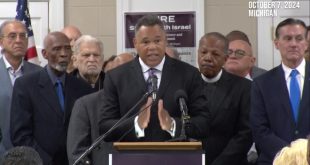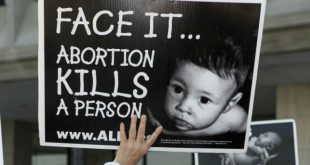I sense an ache in the American Spirit that echoes across tragic episodes of the past, wherein the unrequited despair of a generation wracked by war abroad and violent social protests at home is trying its best to connect to today’s senseless bloodshed of innocents, all in the name of a “wokeness” meant to shift history and the role of the church in relation to history.
Where the church currently finds itself exposes its inability or hesitancy to respond to it all. The deafening silence leaves the many thousands gone without a voice or measure of truth that offers the change needed to make a real difference in the world.
A string of violent incidents stretching across the past decade has challenged the utopian call of “hope” that seemed to bridge a decades-old dream to a promise not yet realized. An elite few adopted a theology of liberation that seeks to reconcile the black experience with that of faith, while the masses of poor and black people outside of it drifted further and further away from the shores of a gospel promise that once held back the rage spilling onto the streets of their communities.
The radicalism of a post-King era has found its way into the academy, politics, and the church. Freedom riders and freedom fighters became professors, politicians, and theologians. The Academy and the Legislature were slowly and methodically coming together to create a new type of church: one that produced a radical gospel of black power that became the black church.
This black church is not the church of our forefathers — the church that sat at the center of the community, the moral compass around which all things ethical revolved. This is not to valorize that old rugged cross, which is a given, but to situate it in such a way that when that church was called to pray and plead the blood, something happened. It had power, a power this world does not know. It’s God’s power. It is not black power. Black power is an intellectual contrivance. It doesn’t plead the blood; it requires blood.
What was asked of that old church, the one where people organized, where prayer went forth, the where the “Bible says…” is what the people believed was the bedrock of the community. Subsequently, things changed, and the changes benefited the many and the few, the rich and the poor. What was asked of that old church was done through, by, and with the Bible. Yet, the church’s relevance and its power gave way to something new.
That something new required a new gospel, a gospel enabled by rage that left the old church behind. What was asked of the church was found in the academy and the Congress, places far from the center of a community that first gave it life and is now being asked — once again — to protect life.
The “black church” that seeks relevance in the public square has compromised its core values and traded its ability to plead the blood for supporting the shedding of the blood of innocents and a legislative dependency not meant to make the most innocent in our community safe.
What we now ask of the church is no different from what has always been asked of it. But the response is markedly different. The blood, which we no longer plead but allow to be shed without protest or appeal, has created a moral dilemma that threatens the safety of the most vulnerable of us and resists our greatest God-given hopes. As such, the mantle of change that leaders of the past hoped would happen, and a newer community that sought answers, remains unclaimed. What we ask of the church should still come with the understanding that it is the blood already shed on Calvary that is more than enough to redeem the bloodshed of the many thousands gone and can save the many thousands to come. What we ask of the church is to strike the mantle of change in the waters flowing at the foot of that old rugged cross from which the power of transformation flows.
Dr. Eddie L. Kornegay, Jr. is a Distinguished Graduate of Chicago Theological Seminary, the first to earn the Doctor of Philosophy in the history of that institution; and the author of The Declaration: A Revelation Primer for Transforming Prison Ministry, 2ed. He resides in Chicago, IL, and works in faith-based community transformation, reentry, workforce advocacy, and justice reform.
 CURE News and Clergy Blog News and Commentary for Christians
CURE News and Clergy Blog News and Commentary for Christians



